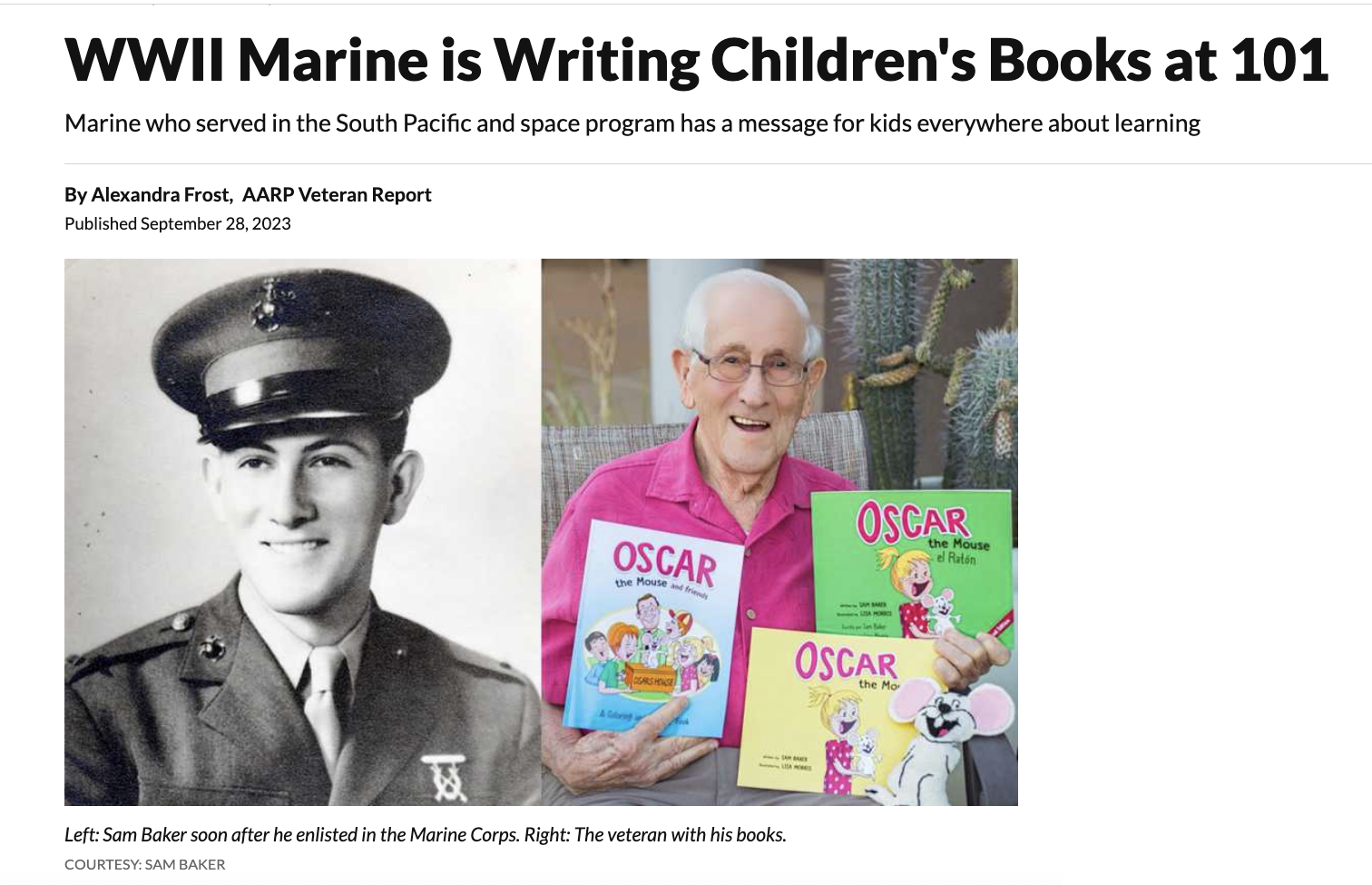WWII Marine is writing childrens books at 101
Sam Baker has lived quite a life. He landed on the beach at Okinawa in World War II, became the world’s first GPS salesman, began authoring books decades after retirement and designed a football helmet that just received a U.S. patent.
He’s 101 and he’s still going.
Baker, who lives in Scottsdale, Arizona, served in the Marines from 1942 to 1947, reaching the rank of captain. He’d grown up as a “poor kid” in the largest Jewish congregation in Mississippi. His parents had lost everything in the Great Depression.
Inspired by the patriotism after Pearl Harbor, he enlisted in the Marines, part of a generation eager to “do our part,” he said.
After the service, he spent 30 years with the National Oceanic and Atmospheric Administration Commissioned Officer Corps – a scientific agency overseen by the Department of Commerce and known as the NOAA Corps.
He retired after serving as director of the National Geodetic Survey and saw the potential of GPS.
“When I sold them, they were $50,000 per unit and weighed 45 pounds,” he told AARP Veteran Report . “It took six hours to get a position. Today, you have it on your phone.”
Baker’s interest in childhood reading began in the early days of the U.S. space program, when he was stationed in Cape Canaveral, Florida, and he told children stories about his own adventures as a young boy.
It wasn’t until he was 95 that he published his first book, born out of his frustration with seeing young struggling readers across the country in the newspaper, which he reads every morning.
“It’s a good way to get other opinions,” he said. “You never learn with your mouth open.”
His views on reading are straightforward.
“Reading is the foundation for all other learning,” he said. “If I can get the children to learn to read to appreciate their imagination and appreciate their reason, I will have done my part.”
Baker, a grandfather of two, has now published two children’s books, Oscar the Mouse, for pre-K to third graders, and The Silly Adventures of Petunia & Herman the Worm, for Grades 2-5. He’s also produced a coloring book and has a third book coming out soon.
Alongside his writing career, Baker and his son Michael, 64, worked on a new football helmet that reduces the impact players receive on contact with each other. It was approved in July by the U.S. Patent Office.
He traces his desire to innovate and educate back to his time in uniform. As a junior officer, he was chosen to lead a platoon from the brig.
“They’d given these young kids the choice to go to combat and get an honorable discharge,” he said.
They’d landed in the brig after “they got drunk, they cursed at officers, and they fought and things like that.”
So he presented them with an opportunity for a fresh start.
“I told them, ‘Nobody aboard this ship knows you are a brig platoon, and only you can tell them,’ ” he explained. “‘Go aboard, take a shower, get in your best uniform, and I’ll meet you every night at 7 pm.’ I had no problem with them.”
Early on, he learned to seek advice.
“There was an officer that I admired, who had made two under-fire landings,” he said. “I asked him what I can do that will help me when I make my first landing.”
Baker made the response his own “charter” ever since: “Treat your people kindly and look forward to giving them the best opportunities available, and they’ll return the favor.”
They landed in Okinawa, the third wave, when the Japanese had paused.
“They were preparing for the invasion of Japan,” he said. “Then, suddenly the war was over.”
While some headed home, Baker stayed in the Marines and went to China to “keep the communists from taking over the port.”
There, he started a school.
“I had a lot of young officers who had just arrived and many had not finished school,” he said. “We taught math, English, history and civics without books. Anyone who didn’t want to go to school had KP [kitchen patrol] duty — so we had everyone in school.”
Baker wants other veterans to know that it’s never too late to make a difference.
“Don’t delay,” he advised. “The first step is the hardest one, but after that, it becomes a lot easier. Once you get started, there are so many people willing to help you.”


